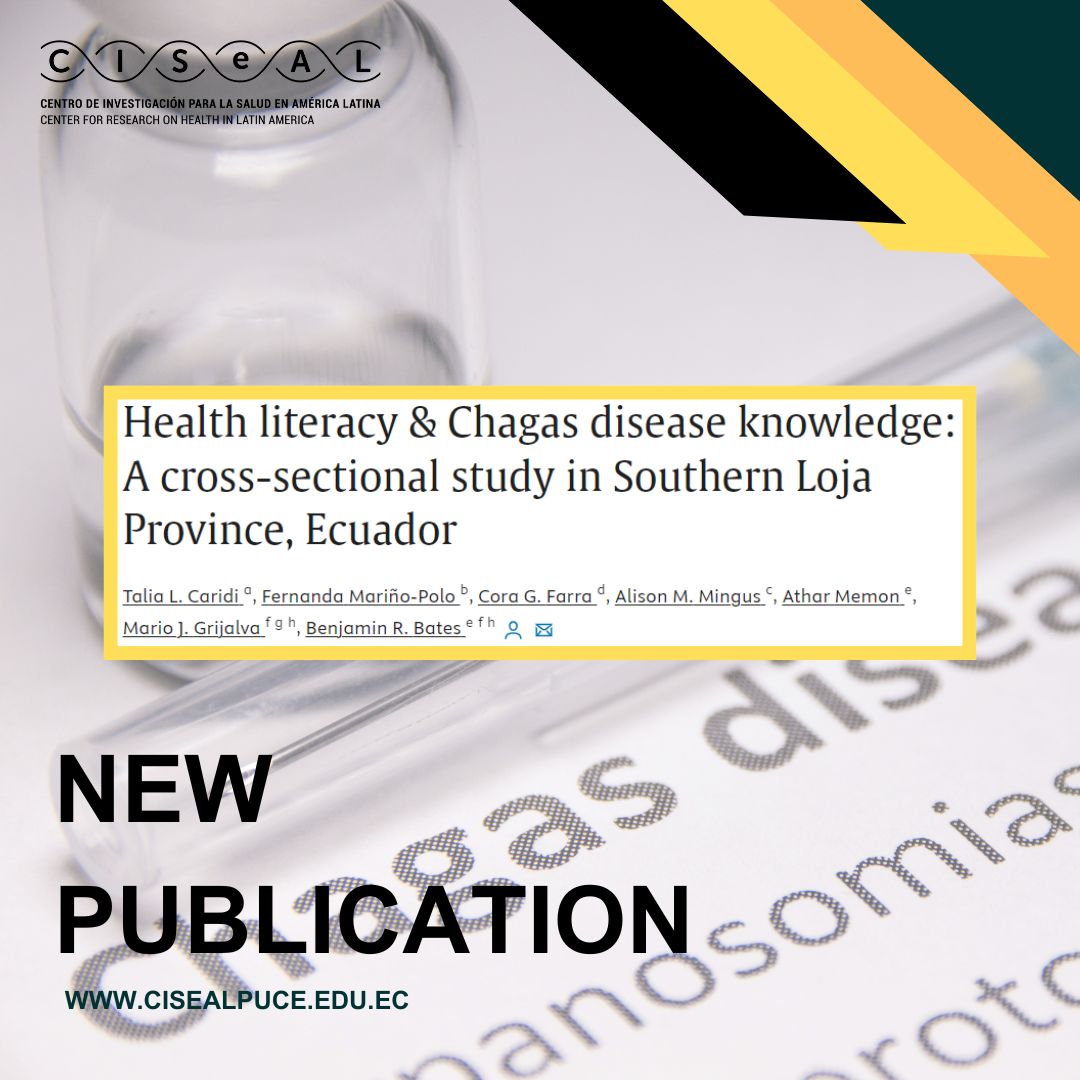 CISeAL principal investigator Mario J. Grijalva, in the last study he was part of, shares with us an analysis of health literacy and knowledge about Chagas disease in the Province of Loja, Ecuador. The study sought to determine the relationship between people's level of health literacy and their knowledge about this disease. For this purpose, a cross-sectional survey was conducted with residents of two rural cantons who attended a mobile health clinic. These communities, characterized by their high risk of Chagas disease and limited access to health services and educational resources, provided an ideal setting for the research.
CISeAL principal investigator Mario J. Grijalva, in the last study he was part of, shares with us an analysis of health literacy and knowledge about Chagas disease in the Province of Loja, Ecuador. The study sought to determine the relationship between people's level of health literacy and their knowledge about this disease. For this purpose, a cross-sectional survey was conducted with residents of two rural cantons who attended a mobile health clinic. These communities, characterized by their high risk of Chagas disease and limited access to health services and educational resources, provided an ideal setting for the research.
The Spanish version of the Short Form Health Literacy Assessment was used to measure health literacy, while the Chagas Disease Knowledge questionnaire assessed specific knowledge about Chagas disease. Analyses included T-tests and correlational analyses to assess possible associations. In total, 85 people participated in the study, predominantly women (64.1%), married (40.7%) and with less than high school education (40.7%), with an average age of 44.31 years.
The results revealed low levels of health literacy and knowledge about Chagas disease in the communities studied. Approximately half of the participants had inadequate health literacy. Surprisingly, no significant correlation was found between health literacy and knowledge about Chagas disease. This suggests that factors such as lack of investment in education about the disease and neglect of health systems in rural areas may influence this disconnect.
This study, a pioneer in assessing the relationship between health literacy and knowledge of Chagas disease in an uninfected population, underscores the need to improve both aspects in rural and poor areas of Ecuador. Before adapting communication campaigns for novel conditions, it is essential to investigate these relationships. The team's findings highlight the importance of addressing gaps in education and health care to effectively combat Chagas disease in vulnerable communities.
If you would like to learn more about this topic we invite you to review the full article at the following link:
https://www.sciencedirect.com/science/article/pii/S2772628224000359?via%3Dihub



